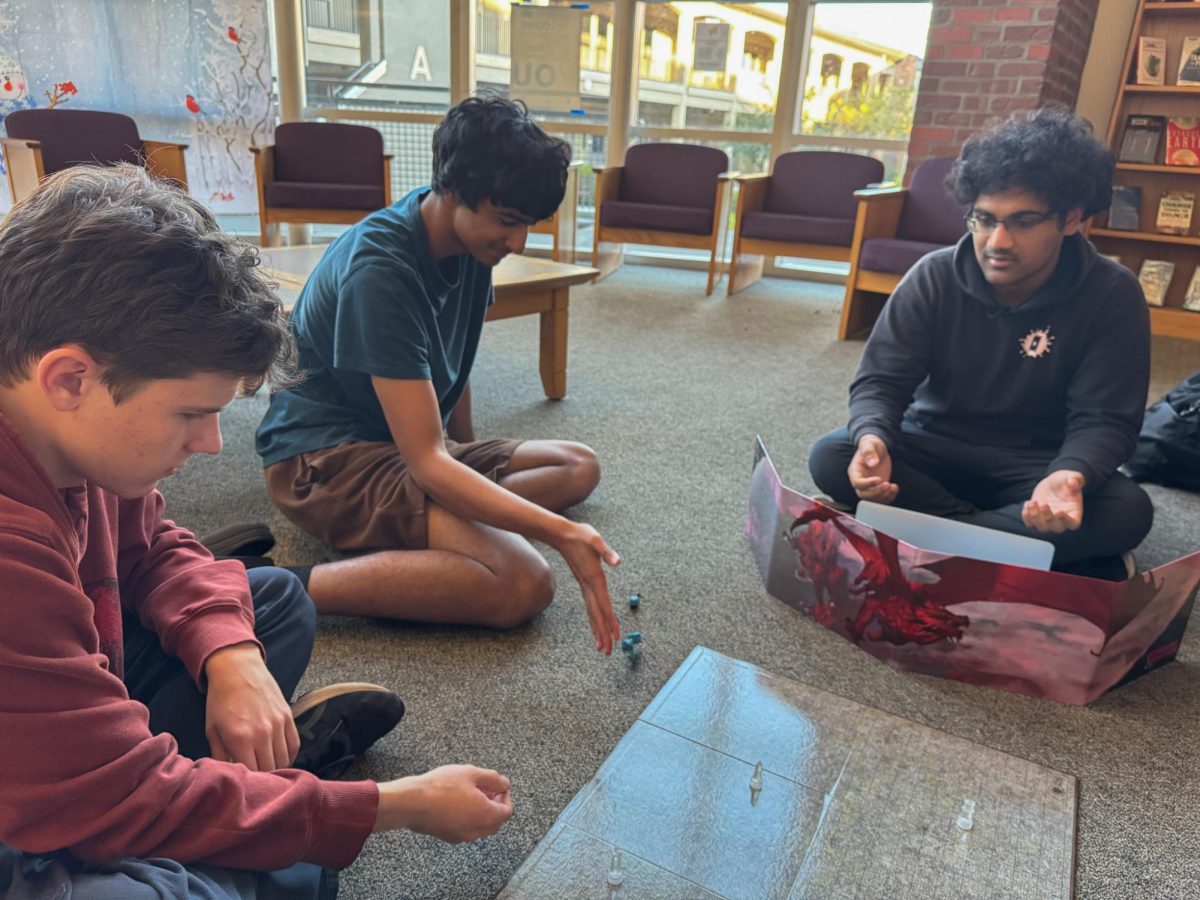The first time I played Dungeons and Dragons (D&D) was over the past summer, when my best friend invited me to learn the game with some mutual friends. Despite being in a different grade and school as everyone else, I was able to bond with the group that I played with, known as my campaign group, as we all learned to play the game.
At first, the game started out rocky. As a Dungeon Master (DM), my best friend had to facilitate the entire fantasy world that my campaign group was in. Although we used a book that had an adventure laid out for us, which made it easier to be a DM, the lack of experience my best friend had showed through his narration. As we were learning, we accidentally omitted some core rules of the game to simplify how we played. As such, our DM made up satisfying conclusions to fit our needs.
The modified version of D&D that we were playing strayed from the inherent randomness of the game and instead became similar to collaborative storytelling. Usually when playing D&D, dice rolls of various types, such as a d20 (die with 20 faces), are used to determine how good or bad the effects of a player’s actions are within the game. However, my best friend did not use dice rolls effectively and instead simply thought of an effect for the player’s actions.
After my friend hgave the position of DM to me, I had the opposite problems: I struggled to create a general tone and storyline but excelled at utilizing the knowledge of rules within my campaign. After I started to be a DM to the group, a different friend group I had within MVHS coincidentally also wanted to start a D&D campaign. From here on, I was able to get experience being a DM from two very distinct friend groups and began to notice the intricacies of both these friend groups.
One of my campaign groups was much more organized and strategic than the other, and required me to shift my tone of voice, body language and other non-verbal cues to be more formal while being a DM. It also meant that the story I created for them had to be more fleshed out, so they could put their logic and intelligence to use.
The other campaign group I led was much more chaotic and informal while playing. With them, I had to come into the session with the mindset that my plan could change at any moment. Being more lenient with this game of chance was something I had to accept with this group. Most of the time, it did not matter whether or not the plot made sense as long as the basic rules were being upheld — nevertheless, I felt satisfaction when I let their creative ideas come to fruition through improvisation.
Only after I started to be a DM for both groups did I notice the large differences between those groups and, more so, how my own personality changed depending on which group I am with. While my experiences being a DM were drastically different for each of the campaigns, I still felt a shared understanding with the people in those individual groups.
Playing D&D, as both a player and a DM, showed me how in the right setting, people can share deep personal connections with each other, without having to directly talk about those connections. Contrasting adventures between fun, comical moments that brighten everyone’s day with deep, emotional scenes, makes players look introspectively through their characters.
However, in order to have a healthy balance of tension and relief, the DM has to plan the agenda for the adventure beforehand. As, without the proper set-up for emotional moments—through close fights with enemies, friendships with non-player characters (NPCs) and a dramatic final boss—the players cannot feel the immersion that comes with roleplaying fictional characters.
Having the role of the DM forced me to combine the skill of empathy and the art of linear storymaking in order to properly govern my friend group and subsequently improve my overall public speaking skills. Although being a player in D&D requires a lot less work than being a DM, which might sound tempting at first, the role of the DM helped me nourish the qualities of leadership in a group setting that I previously lacked.
Despite the fact that D&D is all about role-playing, stat points and even making funny noises to increase the immersion, the nature and breadth of the game truly brought out personality traits in my friends that I had never seen before. This included acquaintances I only knew through a mutual connection and people whom I have known for years. Even though playing a whole campaign of Dungeons and Dragons takes a lot of effort to set up from both the DM and the players, it can be one of the best methods to not only pass time but pull friends out of their shells and into a story.










